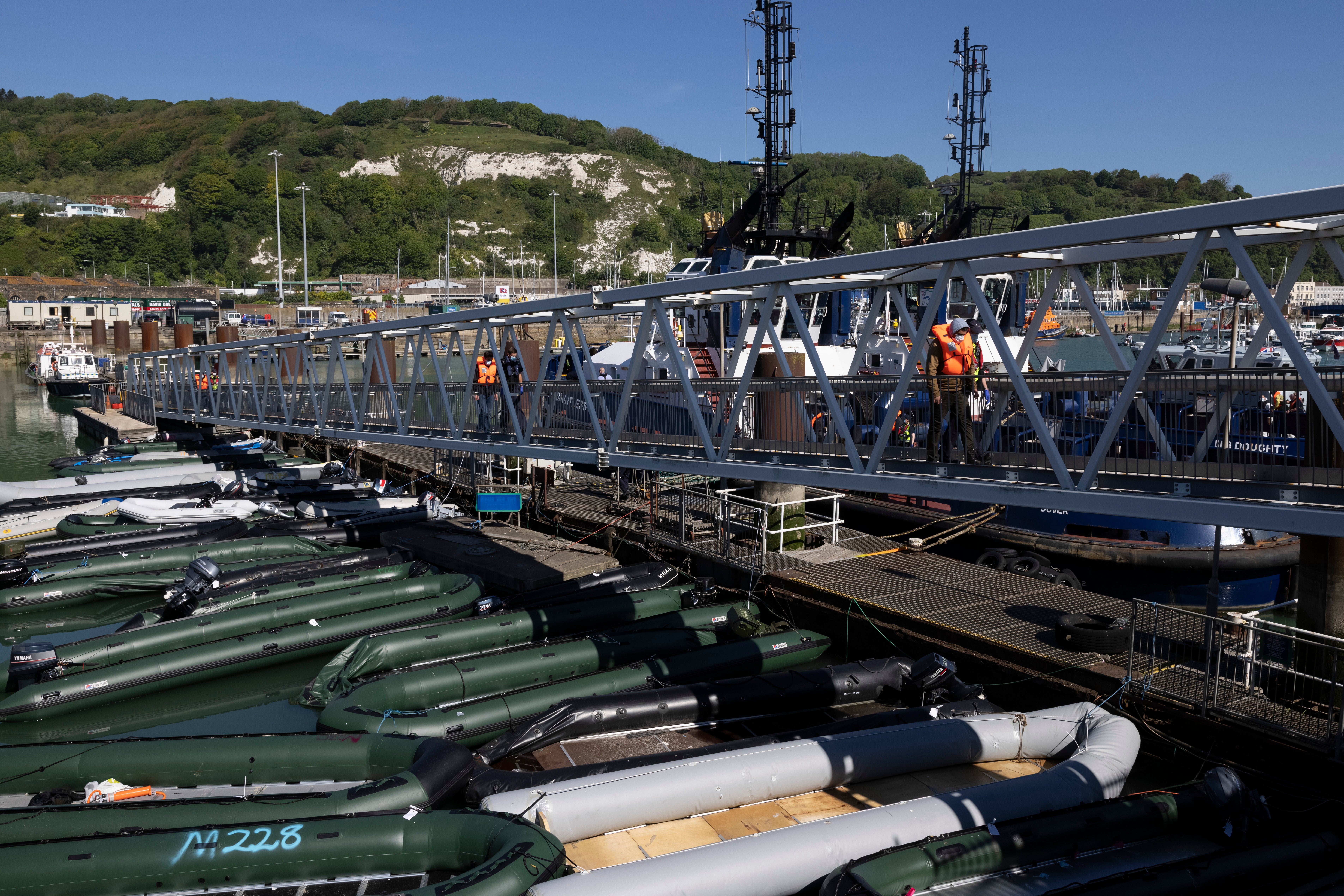Is the government actually convinced about its own offshore immigration plans?
A proposal to process asylum seekers in centres in Rwanda is the latest in a string of leaks to the media about Home Office offshoring plans – but to what extent is it merely about ‘looking tough’, asks May Bulman


The Home Office is reported to be considering plans to create an offshore asylum processing centre in Rwanda. These plans, according to The Times, would see the UK share an “offshore hub” with Denmark, where it would send asylum seekers who arrive via the Channel in small boats to have their claims processed.
The department has since denied that there is such a plan in place, but said it was “looking at what other countries do to deter illegal migration” – and did not rule out the idea of processing asylum seekers in Rwanda.
“We will not rule out any option that could help reduce the illegal migration and relieve the pressure on the broken asylum system,” they added.
Home secretary Priti Patel has already said in her new immigration plans that she will amend sections of the law to make it possible to hold asylum seekers offshore while their asylum claim or appeal is pending.
And it is not the first time that the specifics floated about what this would look like have been leaked to the press.
Earlier this year, another article in The Times reported that Ms Patel was considering sending asylum seekers to processing centres in Gibraltar, the Isle of Man and islands off the Scottish coast.
Separately, the Daily Mail reported that Turkey was also said to be an option for holding UK asylum seekers, as well as other countries “closer to home”.
And back in October, The Times reported that Number 10 was considering converting disused ferries into processing centres to house asylum seekers off the UK coast, and also discussed moving them to decommissioned oil platforms in the North Sea.
Each time, though, it has quickly become clear that the ideas are unlikely to be viable, usually due to legal barriers or a rejection of the proposals by the country or territory in which ministers hoped to place the processing centres.
The latest idea sounds similarly questionable.
It appears there has been no agreement from – or even discussion with – Rwanda, a country already hosting some 133,000 refugees.
In fact, the Rwandan government published a press statement in April rejecting Denmark’s proposals to hold asylum seekers there, saying it was “not part” of a recent bilateral agreement between the two countries on asylum. So such an arrangement with the UK seems unlikely.
So why do these apparently unworkable ideas keep getting a prominent spot in the mainstream press?
Sunder Katwala, director of think tank British Future, says there appears to be a pattern about when these leaks come out, linking it with a surge in Channel crossings this year.
“When [the Home Office is] under pressure they want to put out tough-sounding measures. Channel crossings have risen so they think it’s a good idea to sound tough. It is very much about sending a signal,” he explains.
But he says there is a “big gap” between floating the ideas and “talking tough” and the barriers to implementing them, in terms of striking agreements with other countries, the cost and the legal barriers.
“Shouting loudly about a lack of control, if you don’t really have a plan to make these agreements with foreign governments, is actually stoking up something the government doesn’t have a plan to address,” he adds.
Immigration barrister Colin Yeo echoes his remarks, saying: “There are massive legal, ethical and practical problems when following through on a policy like this.
“It seems like the Home Office wants it to be taken seriously but without there ever being any concrete proposals to actually make it serious.”
It is unclear how seriously – if at all – the Home Office is considering making these latest leaked ideas a reality. But one thing is certain: someone, or a number of people from within the department, want to put out a message that tough offshore processing plans are on the cards.
Join our commenting forum
Join thought-provoking conversations, follow other Independent readers and see their replies
Comments